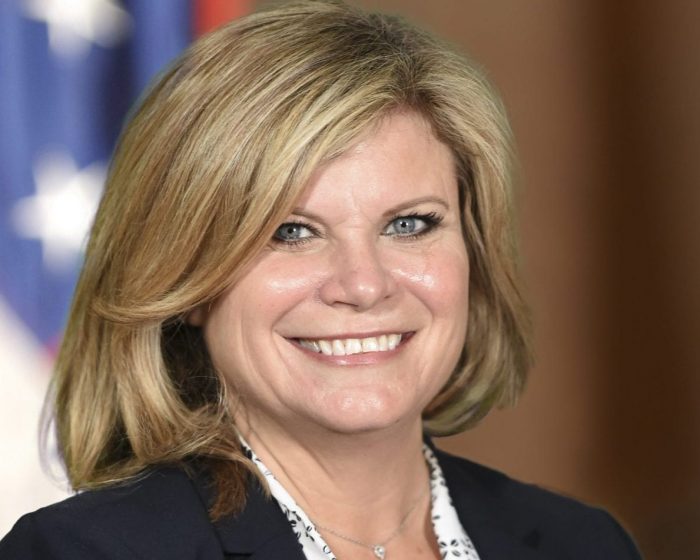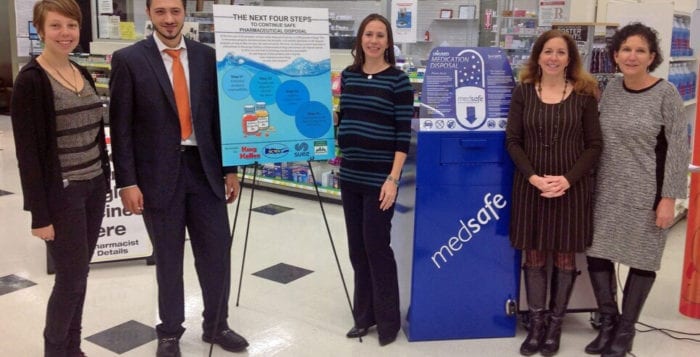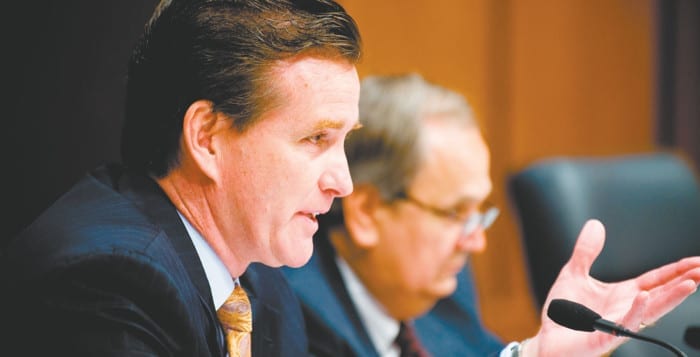After serving on the Riverhead Town Board for 11 years, it’s time for something new.
Assemblywoman Jodi Giglio (R-Riverhead) started her term this month, by replacing now-state Sen. Anthony Palumbo (R-New Suffolk) in his former Assembly district. When state Sen. Ken LaValle (R-Port Jefferson) chose not to run again for the Senate in Albany, Palumbo took his seat after battling it out against Democrat Laura Ahearn.
The Long Island delegation is featuring seven new faces out of 16 Republican representatives — four new State Assembly members and three new senators — and Giglio, a woman with more than a decade-long political history on the East End, is thrilled to take on a new challenge.
“It’s very exciting being in Albany,” she said. “I’m honored by the fact that the voters elected me to represent them, I am working hard every day, learning the system and trying to represent them to the best of my ability.”
Apart from being a former Riverhead board member, Giglio owns her own construction management company. Now she’s ready to tackle whatever 2021 will bring.
“It’s very important in this political and economic climate that we all come together and do what’s best for not only the people of New York state, but for the country,” she said. “I always try to listen to what other people have to say whether I agree with them or disagree with them.
The new assemblywoman said that she will “never be condescending, even if I have a different viewpoint.” Her goal is to find solutions to the problems New York state is currently facing.
Property taxes
Giglio said one of the bills she is currently working on is to waive penalties and interest for late payments of property taxes for homeowners impacted by the pandemic and those on a fixed income.
“By adding penalties and interest every single month that they don’t pay is a strain on the people that are trying to pay their taxes,” she said.
The assemblywoman wants to waive penalties in 60 days from Dec. 31. If a person cannot pay in those two months, there would be no penalties or interest from 60 days to the 90 days, making it a smaller percentage.
Waste management
“We need to figure out our garbage situation with recyclables because we live on an island and clean water and clean air is very important to us,” Giglio said.
With the Brookhaven Landfill expected to close in 2024, the assemblywoman wonders how will waste be removed from the Island.
“What’s the plan? How are we going to get garbage off of Long Island?” she asked. “The costs of getting garbage off of Long Island is really going to have a tremendous tax impact on the residents.”
COVID-19 vaccines
Giglio is hoping to combat the vaccine distribution issues Long Islanders are facing. By rolling out a coherent vaccine plan, she said, then COVID recovery can begin.
“You have to get people vaccinated where they feel comfortable going out and they feel secure,” she said. “That will recreate the businesses opening up, opening up the catering halls, opening up everything at full capacity.”
Giglio said she is unhappy that New York has been at “such a disadvantage compared to other states.”
“I think we should be getting the vaccinations sooner than later,” she said. “It should have been a collaborative effort, whereas the Legislature decided who was the most vulnerable and when the vaccines came in who would be the people to be vaccinated first. It’s based on us as elected officials hearing from our constituents as to who the most vulnerable are.”







